Tianyang Cao
Interference in Spectrum-Sharing Integrated Terrestrial and Satellite Networks: Modeling, Approximation, and Robust Transmit Beamforming
Jun 13, 2025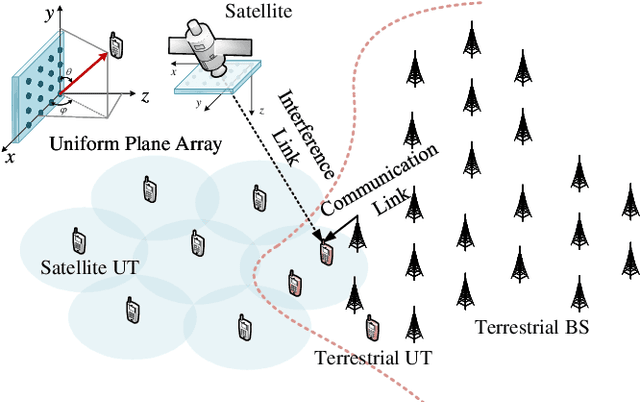
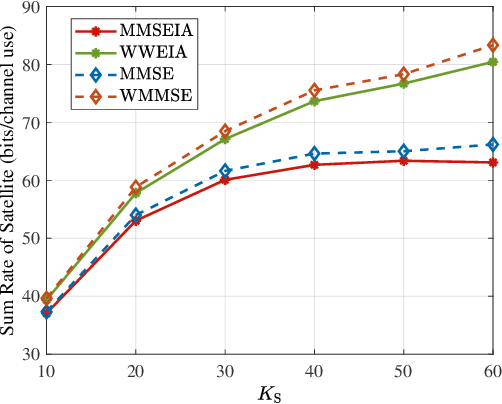
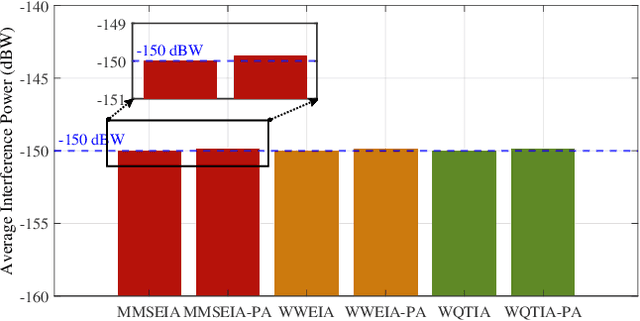
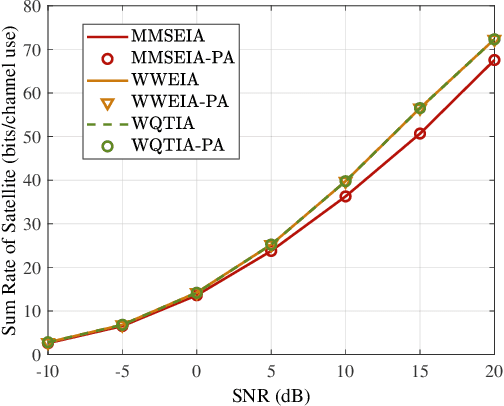
Abstract:This paper investigates robust transmit (TX) beamforming from the satellite to user terminals (UTs), based on statistical channel state information (CSI). The proposed design specifically targets the mitigation of satellite-to-terrestrial interference in spectrum-sharing integrated terrestrial and satellite networks. By leveraging the distribution information of terrestrial UTs, we first establish an interference model from the satellite to terrestrial systems without shared CSI. Based on this, robust TX beamforming schemes are developed under both the interference threshold and the power budget. Two optimization criteria are considered: satellite weighted sum rate maximization and mean square error minimization. The former achieves a superior achievable rate performance through an iterative optimization framework, whereas the latter enables a low-complexity closed-form solution at the expense of reduced rate, with interference constraints satisfied via a bisection method. To avoid complex integral calculations and the dependence on user distribution information in inter-system interference evaluations, we propose a terrestrial base station position-aided approximation method, and the approximation errors are subsequently analyzed. Numerical simulations validate the effectiveness of our proposed schemes.
Channel Tracking for RIS-aided mmWave Communications Under High Mobility Scenarios
Nov 07, 2022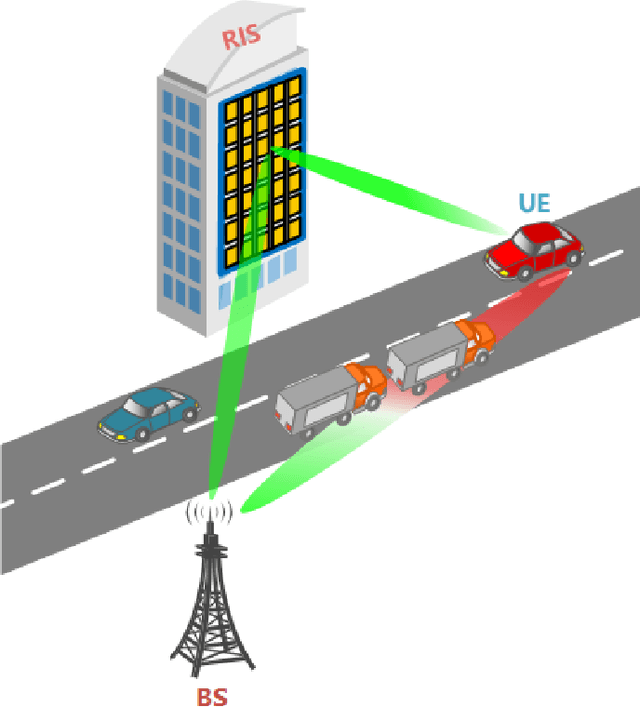
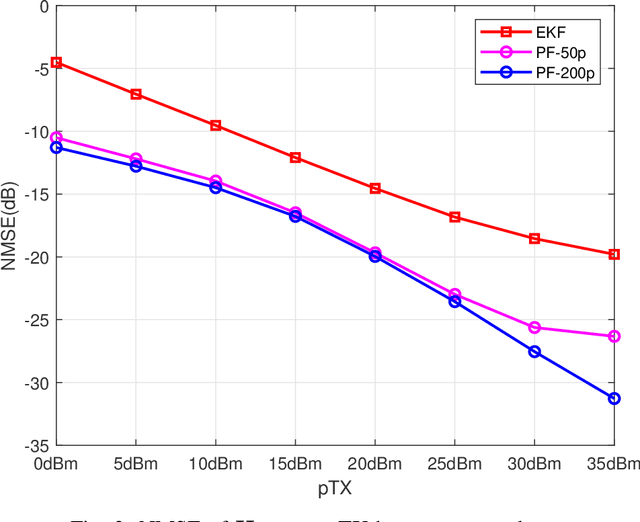
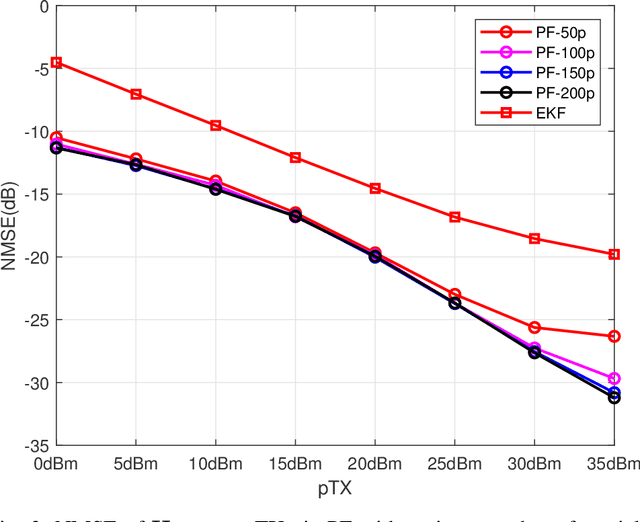
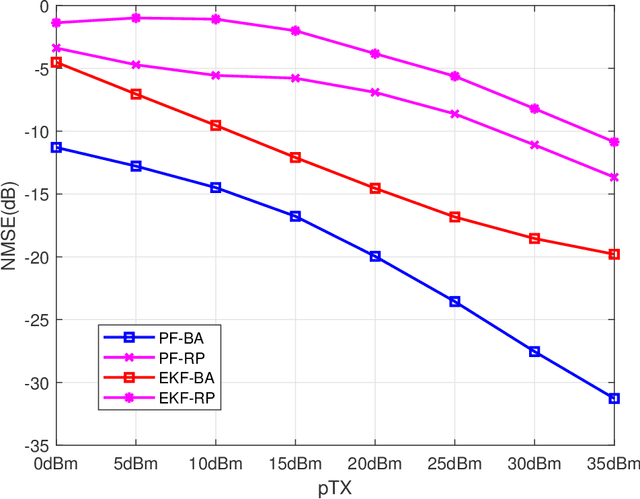
Abstract:The emerging reconfigurable intelligent surface (RIS) technology is promising for applications in the millimeter wave (mmWave) communication systems to effectively compensate for propagation loss or tackle the blockage issue. Considering the high mobility of users in realistic scenarios, it is essential to adjust the phase shifts in real time to align the beam towards the mobile users, which requires to frequently estimate the channel state information. Hence, it is imperative to design efficient channel tracking schemes to avoid the complex channel estimation procedure. In this paper, we develop a novel channel tracking scheme with two advantages over conventional schemes. First, our tracking scheme is based on the cascaded angles at the RIS instead of the accurate angle values, which is more practical. Second, it can be employed under a more general setting where the noise can be non-Gaussian. Simulation results show the high tracking accuracy of our proposed scheme, and validate the superiority to the existing EKF-based tracking scheme.
DISK: Domain-constrained Instance Sketch for Math Word Problem Generation
Apr 10, 2022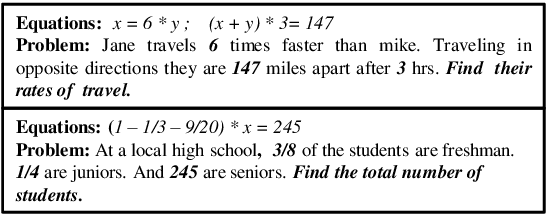

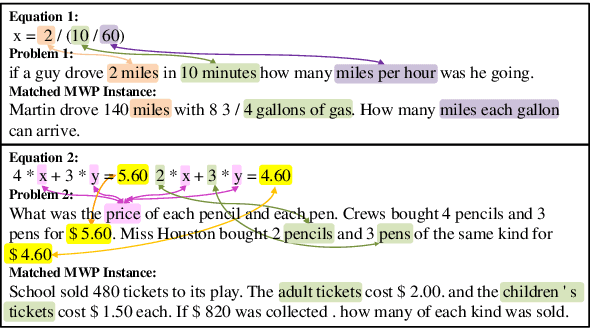
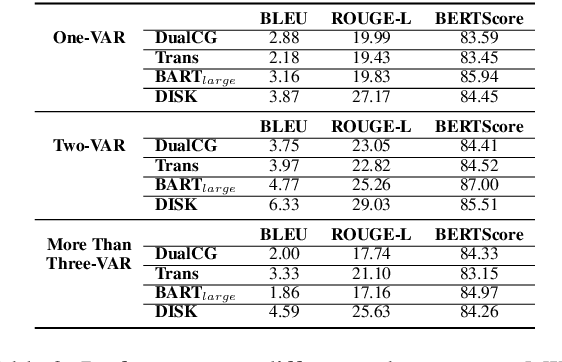
Abstract:A math word problem (MWP) is a coherent narrative which reflects the underlying logic of math equations. Successful MWP generation can automate the writing of mathematics questions. Previous methods mainly generate MWP text based on inflexible pre-defined templates. In this paper, we propose a neural model for generating MWP text from math equations. Firstly, we incorporate a matching model conditioned on the domain knowledge to retrieve a MWP instance which is most consistent with the ground-truth, where the domain is a latent variable extracted with a domain summarizer. Secondly, by constructing a Quantity Cell Graph (QCG) from the retrieved MWP instance and reasoning over it, we improve the model's comprehension of real-world scenarios and derive a domain-constrained instance sketch to guide the generation. Besides, the QCG also interacts with the equation encoder to enhance the alignment between math tokens (e.g., quantities and variables) and MWP text. Experiments and empirical analysis on educational MWP set show that our model achieves impressive performance in both automatic evaluation metrics and human evaluation metrics.
Generating Math Word Problems from Equations with Topic Controlling and Commonsense Enforcement
Dec 14, 2020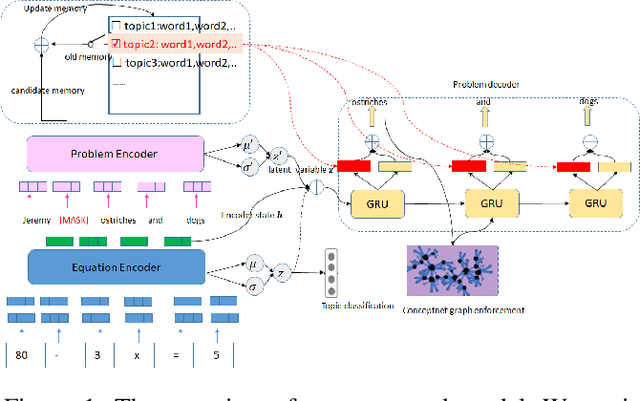
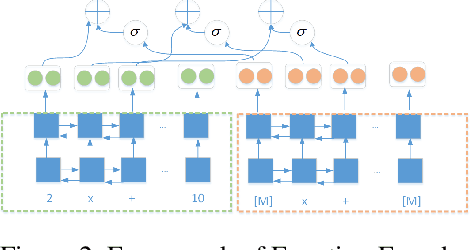
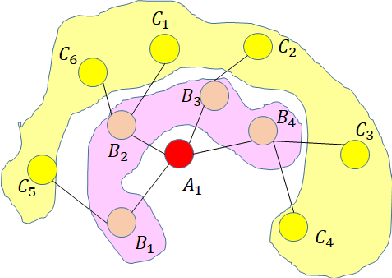

Abstract:Recent years have seen significant advancement in text generation tasks with the help of neural language models. However, there exists a challenging task: generating math problem text based on mathematical equations, which has made little progress so far. In this paper, we present a novel equation-to-problem text generation model. In our model, 1) we propose a flexible scheme to effectively encode math equations, we then enhance the equation encoder by a Varitional Autoen-coder (VAE) 2) given a math equation, we perform topic selection, followed by which a dynamic topic memory mechanism is introduced to restrict the topic distribution of the generator 3) to avoid commonsense violation in traditional generation model, we pretrain word embedding with background knowledge graph (KG), and we link decoded words to related words in KG, targeted at injecting background knowledge into our model. We evaluate our model through both automatic metrices and human evaluation, experiments demonstrate our model outperforms baseline and previous models in both accuracy and richness of generated problem text.
 Add to Chrome
Add to Chrome Add to Firefox
Add to Firefox Add to Edge
Add to Edge